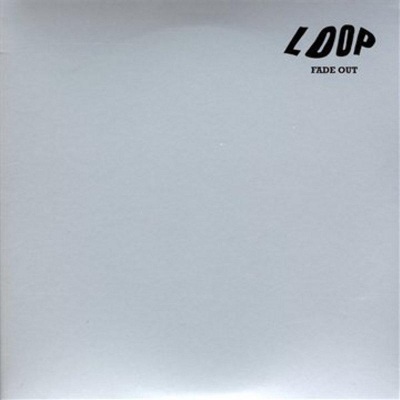
Fade Out
by Andy KellmanDistinguishing one Loop record from another is nearly as tricky as doing the same for the Ramones or AC/DC. Since Loop more or less stuck to one thing, remaining consistently great and gradually developing an experimentalist streak throughout their brief lifespan, the actual sound of each record is what separates one from the next. Aside from increasing control over their instruments, there isn't a great deal of actual progress made, but this is no fault. Wrecking ball riffs that remain firmly balanced between lunkheaded and complex always play a major role; simple but effective rhythms propel; Robert Hampson's vocals generally play the role of additional instrument, doing little more than expressing the subject given in the titles. Like the remainder of their discography, the song titles themselves are ideally descriptive. "This Is Where You End" and "Torched" have some of Hampson's meanest vocals, contrasting with the wasted (or, well, faded) effect provided on "Fade Out." Repetitive stutter shuffles play throughout "Vision Stain." "Pulse" and "Black Sun" offer massive howling. The guitar leads sound ear-piercingly tinny and high in the mix on occasion, perhaps to distinguish further from the droning riffs. The Rough Trade CD adds five bonuses, including covers of the Pop Group and Can. Their version of the Pop Group's "Thief of Fire" slows the mania of the original down to a near-lumpen pace, still expressing all of Mark Stewart's exasperated vocals. Can's "Mother Sky" is more true to the original, clocking in at 11 minutes and containing the same trebly guitar buzz and tumble drums that the original thrives on.
